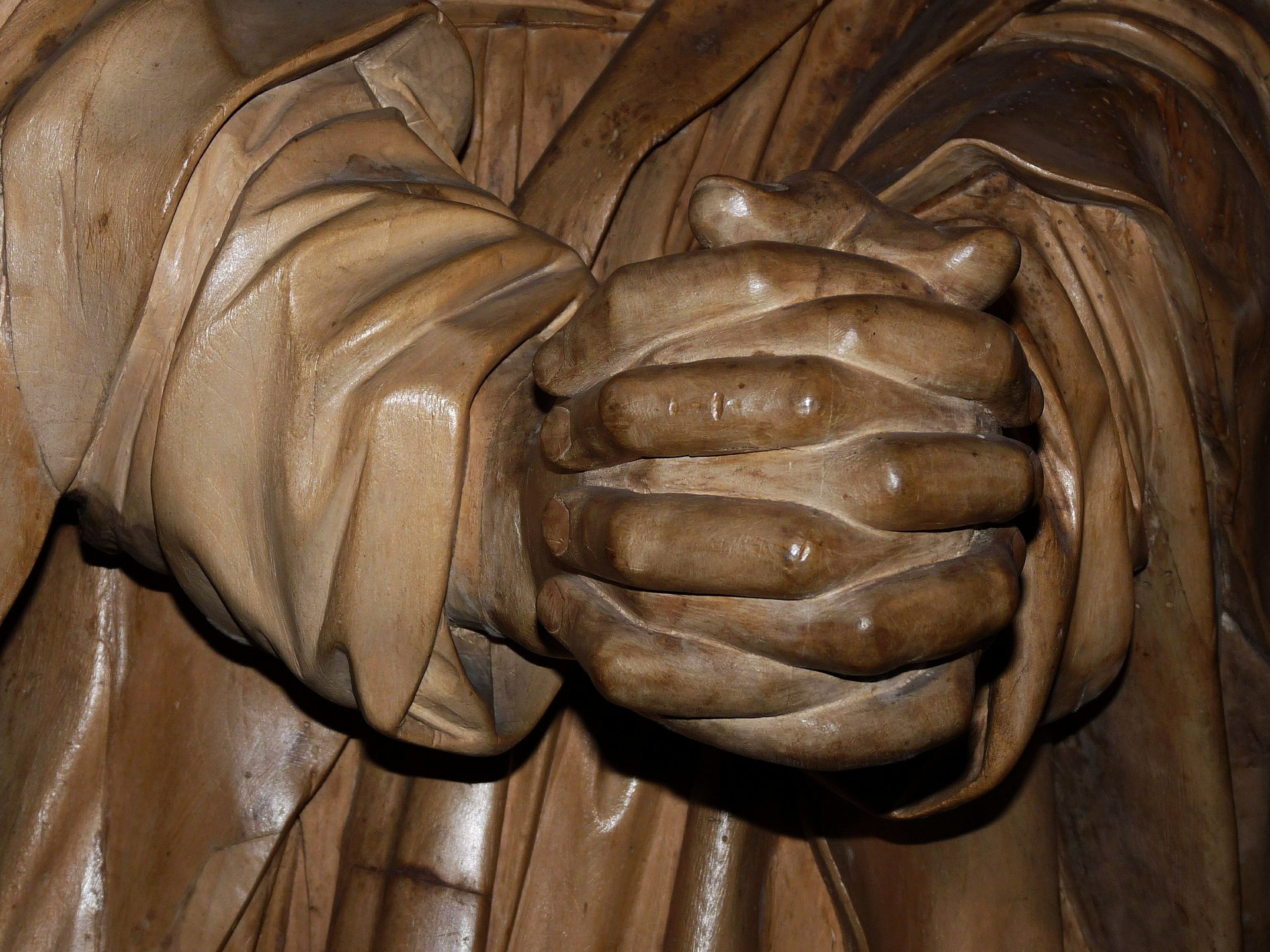Moses and Aaron came before Pharaoh, and they did as G-d had commanded: Aaron threw his staff before Pharaoh and before his servants, and it turned into a serpent. Pharaoh summoned also [his] wise men and sorcerers… each cast his staff, and they turned into serpents; but Aaron’s staff swallowed up their staffs.
Exodus 7:10-12
The Torah emphasizes that it was Aaron’s staff that consumed the serpent-staffs of the Egyptian sorcerers. Our sages explain that since it is natural that a snake swallow another snake, G-d made that Aaron’s staff should swallow the others after it had reverted to its original, inanimate form, thereby demonstrating the impotence of Egypt’s idols in a manifestly miraculous way.[1]
But the miracle of the swallowing stick is more than a sign and warning to Pharaoh; there is also a lesson here, to each and every one of us, on how to confront the various “Pharaohs” we must deal with in the course of our lives. The Torah’s “ways are ways of pleasantness, and all its paths are peace”[2]—our mission is to create light, not to battle darkness. Nevertheless, there are times when we are forced to resort to battle, when we must vanquish those who seek to vanquish us. Thus Moses, the gentle shepherd of Israel,[3] and Aaron, the epitomic man of peace,[4] found themselves in the role of “judge and chastiser of Pharaoh”[5] and the Egyptians, crushing their might and obliterating, one after another, their icons and myths.
But even when he wages war, the Jew is not a warrior. Even when he consumes the serpents of the enemy, he is not a serpent himself, spewing poison and hate. His instrument of vengeance is as devoid of vengeful feeling as the stoic staff, as cold to the rage of war as a lifeless stick.
Based on an address by the Rebbe, Shabbat Va’era 5742 (January 23, 1982)[6]
Count Me In
Pharaoh said: I will let you go. Sacrifice to G-d your G-d in the wilderness, but don’t go too far. Pray for me.
Exodus 8:24
A chassid remarked: The animal soul of man, which embodies his selfish and material desires, knows that it is futile to try to dissuade a Jew from serving his Creator. So when a Jew wants to pray, it doesn’t try to stop him; instead, it seeks to transform his service into just another selfish endeavor. Go ahead, says the “Pharaoh” within, serve your G-d. But don’t go off too far, don’t lose sight of the world you live in. Pray for me as well—don’t forget about my needs…[7]
Shards or Sparks?
Quoting the verse, “Behold, My words are as fire, and as a hammer that shatters a rock,”[8] the Talmud expounds: “Just as a hammer divides into many sparks, so does a single verse of Torah yield many meanings.”[9]
This saying itself is no exception: it, too, spawns several interpretations by the sages. These include:
a) Rashi[10] reads the metaphor, “Just as a hammer divides the rock into many sparks…” According to this, the “sparks” the Talmud speaks of are the rock-fragments of the shattered stone. This interpretation is in keeping with the wording of the verse, which likens the word of G-d to “a hammer that shatters a rock.”
b) Others[11] understand the word “sparks” in the literal sense—i.e. the sparks that are generated by the hammer when it strikes a rock. According to this interpretation, the word “shatters” is to be understood in the sense of “lets fly” or “scatters.”[12]
Often, a student of Torah might be inclined to favor one mode of Torah study over the others. A certain type of mind might tend to a “literal” approach, interested only in “What actually happened?” and “What is the Torah saying on the most basic, pragmatic level?,” while regarding the homiletic, philosophical and mystical interpretations of Torah as only of secondary significance. Another might adapt an exclusively “talmudic” stance, with an eye only to the legal dimension of Torah. A third is perhaps drawn most strongly by the philosophical implications of G-d’s word, while a fourth is “turned on” only by the mysticism of its kabbalistic interpretation.
Indeed, G-d’s word is as a hammer that shatters a rock, breaking it into fragments of diverse sizes and shapes. Each soul can thus find the particular fragment that most appeals to it, the one that best fits the form and texture of its own nature and aptitude. However, one must always remember that G-d’s word is also as a hammer that lets fly sparks—a spray of unquantifiable pinpoints of energy.
Yes, when the hammer of divine wisdom strikes the rock of reality, the sparks fly off in all directions. Some ascend to the esoteric heights, others cascade down to pragmatic ground; still others meander off to philosophical, psychological, inspirational, and countless other points of the cosmic compass. But can one measure sparks against each other? Can one say that any one spark is greater, brighter, more relevant than its fellows?
Based on the Rebbe’s talks, Tevet-Shevat 5741 (January 1981)[13]
The Meteorology of the Soul
For the land which you are entering to inherit is not like the land of Egypt from which you are coming… it is a land of hills and valleys, which drinks water of the rain of the heavens
Deuteronomy 11:10
The land of Egypt does not drink rainwater; rather, the Nile rises and waters it
Rashi, Genesis 47:10
And G-d rained hail upon the land of Egypt. And there was hail, and fire burning within the hail…
Exodus 9:23-24
Rain represents the reciprocal relationship between heaven and earth. “A vapor rises from the earth”[14] to the heavens, and the heavens return it as rain which “quenches the face of the land.”[15] This represents the spiritual truth that “an arousal from below evokes an arousal from above”[16]—that G-d responds to the efforts of man, reciprocating our prayers, yearnings and deeds with nurture from Above.
But rain alone does not suffice to make the land flourish and give fruit. The soil must be plowed—broken up and softened—before it can receive the seed and absorb the rain. Spiritually, this means that it is not enough to send up “vapors” of lofty feelings and virtuous works; one must first “plow” his ego, crush the clods of coarseness and arrogance in his personality, to make his life receptive to the flow of divine nurture from Above.
This is the doctrine of the rain-watered land. But in Egypt things were different. Egypt was nourished not by descending rain but by the overflow of the Nile, which would periodically flood the land. Nor was it necessary to plow its soil: the floodwaters of the Nile would leave behind a layer of extremely fertile silt which required no breaking up prior to planting.
The spiritual Egyptian is one who does not recognize the Heavenly source of the blessings of life. He believes that all is generated from below—that everything he has and has achieved is of his own making. Nor does he see the need for any “plowing” of his personality—he is fine as he is, clods and all.
Fire and Ice
When rain falls in Egypt, it falls as hail. Hail that is ice without and fire within.
We often speak of “warm” and “cold” personalities. A “warm” person is a passionate, loving, outgoing individual, always ready to extend a hand and a smile to a fellow. A “cold” person is reserved, self-centered, indifferent to the fate of others. But the cold individual is also aflame—fired with self-love, ablaze with egotistical passions. Indeed, it is his excess of inner heat that is the cause of his icy exterior.
When rain falls in Egypt, it falls as a hail of ice-enclosed fire. In this unplowed land, where the heavenly source of its water is unseen and unrecognized, the nurture that descends from Above is perverted as a source of increased love of self and greater alienation between man and his fellow.
Based on an entry in the Rebbe’s journal dated “Va’eira 5702” (1942)[17].
Adapted from the teachings of the Lubavitcher Rebbe by Yanki Tauber.
[1]. Midrash Rabbah, Shemot 9:5.
[2]. Proverbs 3:17.
[3]. See Midrash Rabbah, Shemot 2:2.
[4]. “Be of the disciples of Aaron: one who loves peace, pursues peace, loves G-d’s creatures and brings them close to the Torah.” (Ethics of the Fathers, 1:11)
[5]. Exodus 7:1 (see Rashi).
[6]. Likkutei Sichot, vol. XXVI, pp. 57-58.
[7]. Praying for one’s material needs is a basic component—indeed, the basic component—of prayer; nevertheless, the Jew is enjoined to make prayer an expression of his soul’s yearning to transcend its material embodiment and cleave to its Creator. For a lengthier treatment of this paradox see A Glass of Milk, WIR vol. V no. 50 and The Legacy of Cain, vol. VII no. 5.
[8]. Jeremiah 23:29.
[9]. Talmud, Sanhedrin 34a; cf., ibid., Shabbat 88b.
[10]. On Talmud, Shabbat ibid.
[11]. Maharal, Divrei Dovid and Nimukei Shmuel on Rashi, Exodus 6:9.
[12]. For yet a third interpretation, see Tosefot on Talmud, Shabbat 88b and Sanhedrin 34a.
[13]. Likkutei Sichot, vol. XXI, pp. 35-37.
[14]. Genesis 2:6.
[15]. Ibid.
[16]. Zohar, part I, 77b, et al.
[17]. Reshimot #27.








Just excellent!
In time, under the wire, and I thank you!
P.s. transitions are especially strong!
Again, that’s it!